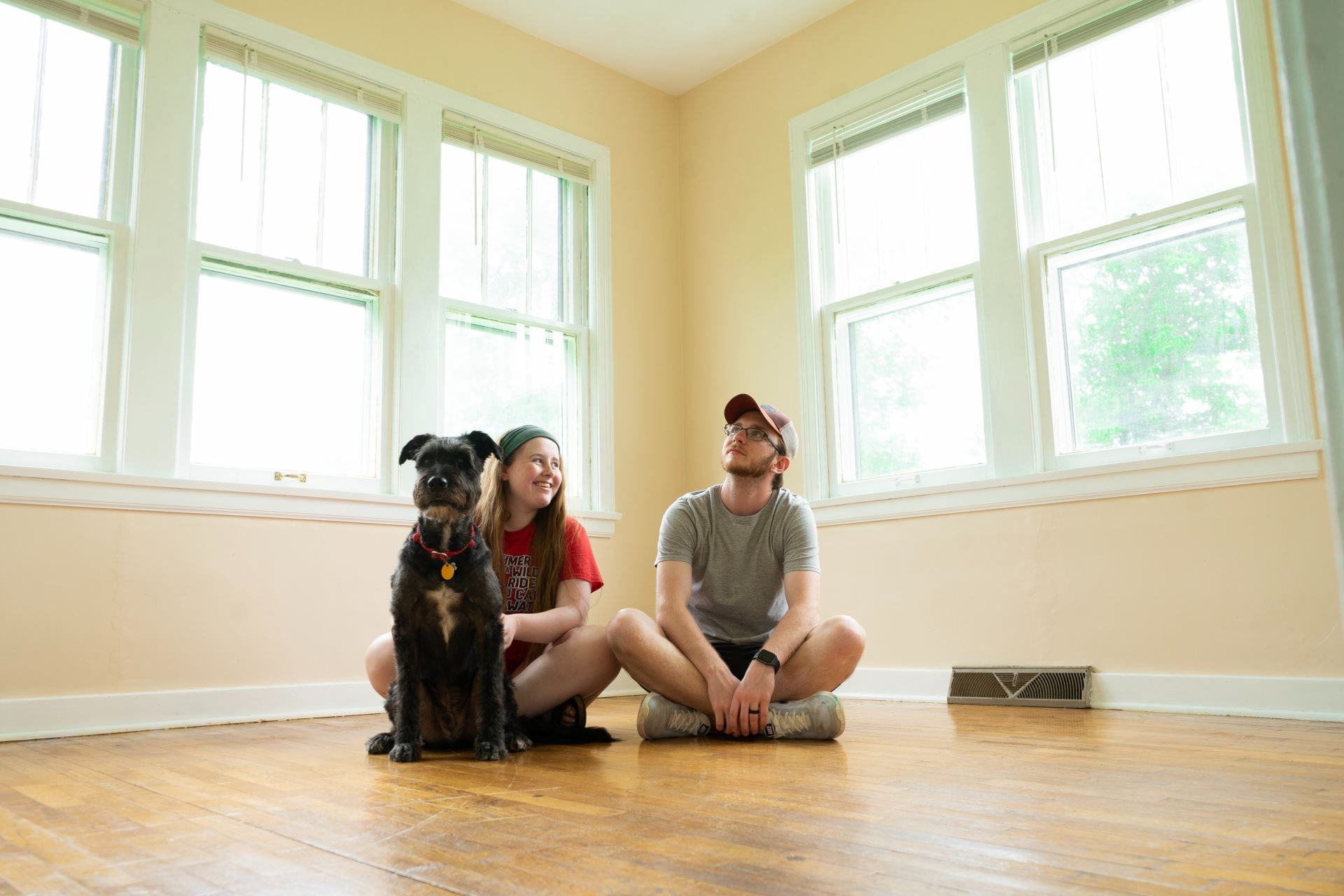Having your own space is important, but the process of obtaining it can lead to so much ache and hardship. In this essay, we explore the trade off between minimalism and the benefits of ownership.
Rent; low cost, low ownership
Many people rent because it’s more financially achievable in the short term than buying, and by default this sets up a sort of perception that renting is somehow less, or somehow poorer than owning your own home. While it’s true that there are downsides to not owning your own home, there are ways to make renting a more fulfilling experience, and there are ways to use renting to your advantage by buying less stuff and living a more minimalist lifestyle.
Cheap rent is expensive
Have you ever thought about the fact that you’re paying money to live somewhere and not have any ownership over it? It’s a strange concept, and one that I’ve been pondering a lot lately. I guess I was thinking about it too much when I realized that the amount of money I’m paying to live in my apartment is almost the same as the amount of money I’d pay to buy a mid-range new car. Both tend to last me a year and a half, but at the end, one would be mine and the other wouldn’t.
I’m beginning to think that the cost of rent is not cheap, but is in fact expensive. Let me explain what I mean. While your rent today, and next month is well within your budget (assuming you are lucky enough to have a job or very supportive parents), in the long term, you are living somewhere and not owning it, not accumulating that money into something that you will eventually own. I’m beginning to think that it’s more important to own than it is to rent.
Rent is not ownership. I’ve had this discussion with some friends, and while I’m not arguing that people should run out to buy homes and stop renting, I’m trying to understand the relationship that is created between a person and a home when they live in it.
For some reason, I’ve always felt that when you live in a place, you become a part of it, and it becomes a part of you. You make the place your own, adding your own personality to it, and making it more comfortable and more your own. It’s a strange feeling, and totally different than when you rent a place and are trying to make it look nice, and trying to make it yours, knowing full well that a few weeks ago it was someone else’s book shelf. This feeling is heightened when you’re short term renting, knowing that your bookshelf (today), will be someone else’s in a few weeks or months. You feel, unanchored, unattached.
On the upside, having low costs means you don’t have to work as much, or you don’t have to work at a job that you hate, leaving so much more room in your life for what you do want, and do enjoy. If that isn’t minimalism, I don’t know what is! So, you can use low rent to your advantage by living with less, and working less, allowing more time for yourself. Low cost, and low ownership isn’t necessarily a bad thing. Less is more in this case.
A choice
Why don’t we try framing it as a choice between two alternatives, rather than one being strictly better than the other. It’s about the objective and subjective pros and cons of each situation, not absolutes. If you’re at a stage in your life where what you really want to do is just go to the library on campus and study and go out with friends a lot, then really, your place only needs to be a square with one room with one TV, so you don’t have to think about where to watch the latest season of your favorite show. Why put in effort to pay for more, when you don’t need it?
On the other hand, if you love spending a lot of time at home, and you’re relatively well off, then maybe you should look for the opportunity to own. As I said earlier, rent is expensive in the long term, and you’re going to be living somewhere anyway, so you might as well be paying that money into the bank account of your future self, rather than someone else.
There is no shame in renting, not only if you’re young and just starting out, but if you’re older and have priorities that make it a good and sensible choice. Don’t buy more than you need, be a minimalist about it! “Snow birds” are famously adept at this. They get to experience so many more houses, and are helpfully forced to reduce their possessions, twice a year, moving north and south. Either that, or they indulge in a storage lockup, burning money for possessions (which really, when you think about it, is really burning time for space).
I’m just beginning to think about all of this, so I’m sure it’ll come up again in future posts.
If you’re interested in reading more about minimalism, check back here for new posts and reach out to tell your minimalism story!

